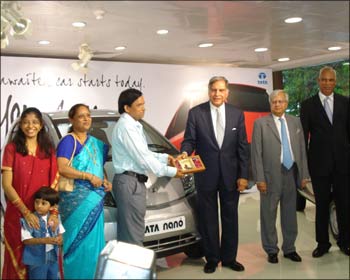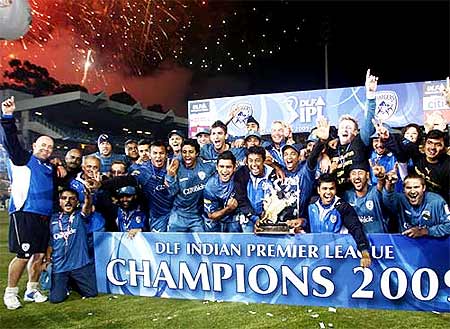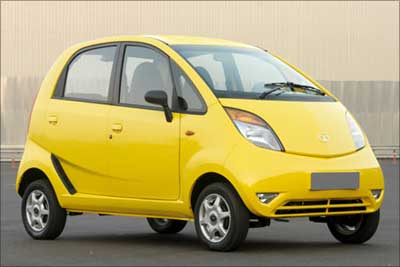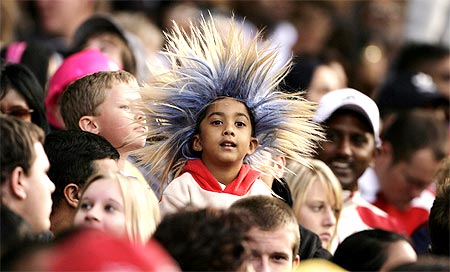 | « Back to article | Print this article |
India's greatest brands of 2008
The Nano and Indian Premier League, both game-changers in their market, are in a dead heat in the Brand Derby to decide the best brand launches of 2008.
Eighty-seven per cent respondents, senior marketers in top metros, rated IPL as very successful, as against 76 per cent for the Nano. But when asked to rank the very successful brand launches, 27 per cent put their faith on the Nano and 24 per cent on IPL.
The two are perhaps the most powerful brands ever to have emanated from India. (The Taj Mahal would be bigger but its makers were evidently unaware of the tools with which to build brands.)
While IPL has taken the cricket world by storm (countries fell over each other to host the second edition of the tournament in April 2009), the Nano has elevated frugal engineering to newer heights.
Even Japanese small-car maestros like Suzuki have said they can't build a rival to the Nano. It has, since its launch, become a generic expression for something that is cheap but not short on features, not stripped-down but value-engineered.
India's greatest brands of 2008
The commercial success of IPL is proven -- a task Tata Motors will have to accomplish in the next few quarters.
Golden debuts
But when it comes to sheer achievement, Nano is head and shoulders above others. The disbelief when Ratan Tata drove the car to the podium at the Auto Expo in New Delhi on January 10, 2008 only added to its mystic.
Till the last moment, rivals weren't sure if Tata would be able to deliver on his promise of a car for just Rs 1 lakh. "It was a leap of faith, as big as Pokharan," says a band expert, referring to the nuclear explosions carried out by India at this remote village in the deserts of Rajasthan in 1974.
India's greatest brands of 2008
After much sabre-rattling, Tata Motors moved the plant to Sanand in Gujarat. But that did not take the sheen off the brand. When it was time to open bookings, Tata Motors had to spend little on conventional advertising - the car had been so much talked about.
IPL, on the other hand, was an experiment with a new format of a sport that sells like nothing else in India. It promised the best of many worlds: Slam-bang cricket from the subcontinent, the league format from Europe and the look and feel of baseball matches in the US, complete with dugouts and cheer girls. And it delivered on the promise.
India's greatest brands of 2008
It was a great marriage of entertainment and sport. All of a sudden, viewers were back in cricket stadiums. Like Keynes gave mainstream economics its life-breath back after the Great Depression, IPL showed that there was a lot more that can be extracted from cricket.
On the third spot after the two powerhouses is Swift Dzire, the sedan from Derby regular Maruti Suzuki. Sixty per cent of the respondents thought it was very successful and 16 per cent ranked it on top amongst the very successful launches of 2008.
The car, which replaced the old warhorse Esteem, may be under-advertised, but the queue of customers is long - the wait for a Swift Dzire can be as long as four months.
The country's largest car maker's other launch of the year, the A-star, hasn't done so well. Only 14 per cent felt it was very successful. In the ranking sweepstakes, it is 15th amongst 16 brands. Suzuki, the Japanese parent of Maruti Suzuki, is best known in the automobile world for its small cars and not sedans.




